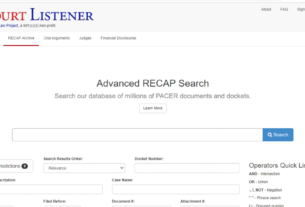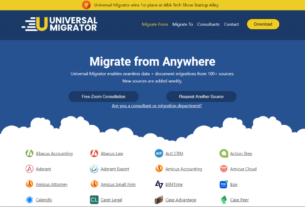Thomson Reuters is getting into the game of AI-powered contract analysis with the launch today of HighQ Contract Analysis, a contract review tool that uses machine learning to find answers to specific legal questions.
Integrated with HighQ, the collaboration and workflow platform Thomson Reuters acquired in 2019, HighQ Contract Analysis is designed for attorneys to use in transactional due diligence, compliance review and contract investigations.
The announcement comes today as TR kicks off its inaugural SYNERGY conference, a three-day event that focuses on the business and financial aspects of legal practice, and that replaces the VANTAGE conference that TR formerly held for customers of its Elite products.
“HighQ Contract Analysis begins with the deep knowledge of Practical Law editors who use their expertise to develop proprietary contract review templates specific to legal domains, and then leverages the work of AI experts at Thomson Reuters Labs to train and validate its machine-learning models,” said Andy Martens, head of Research Products at Thomson Reuters, “The result is a highly tailored, guided review that saves our customers’ time and costs, and improves the accuracy and insights of the contract review process.”
According to Thomson Reuters, the new is built around specific legal domains, launching with two — real estate leases and sales and services agreements — and soon extending to other areas, including intellectual property agreements and employment agreements.
For each domain, Practical Law attorney editors develop a list of key questions that reviewers might want to ask during a contract review. For example, TR says, the tool can find answers to questions such as, “What are the landlord’s maintenance obligations?” or “Is there a mutual right to break?”
TR provided this explanation of how it works:
“To kick off the review, the HighQ AI Hub ingests the document, classifies the contract, and identifies essential facts like parties, deal value, language and jurisdiction. The new HighQ Contract Analysis pretrained domain models then automatically extract and retrieve defined terms and definitions from within the agreement, divide the document into text snippets, evaluate every snippet against the review questions, and return all text that meet the criteria relevant to answering each question.”
A “Guided Review” interface allows users to assess the answers and comment, annotate and assign risks within the document.
It can be used to analyze contracts in bulk or to review a single document. Users can compare documents to an identified company standard or to Practical Law standard documents in order to find non-standard terms, deviations and risks.
Rawia Ashraf, vice president of Legal Practice and Productivity at Thomson Reuters, described a typical use case:
“A typical use case would be for a buyer assessing a purchase of an office block, based in part on a review of all the contracts associated with the properties being purchased. The buyer needs to identify key risks, such as how much income is generated by these properties, what properties are likely to be vacant and who is liable for things such as insurance and repair. This is fast, easy work for HighQ Contract Analysis.”
Later this year, TR said, HighQ Contract Analysis will release its AI Model Trainer, which will provide an easy-to-use process to manage, re-train and evaluate the machine-learning data models to refine their analysis of a user’s own contracts.
Longer term, TR said, users will be able to define their own models, managing the questions and facts to match their, and their client’s, expectations.


